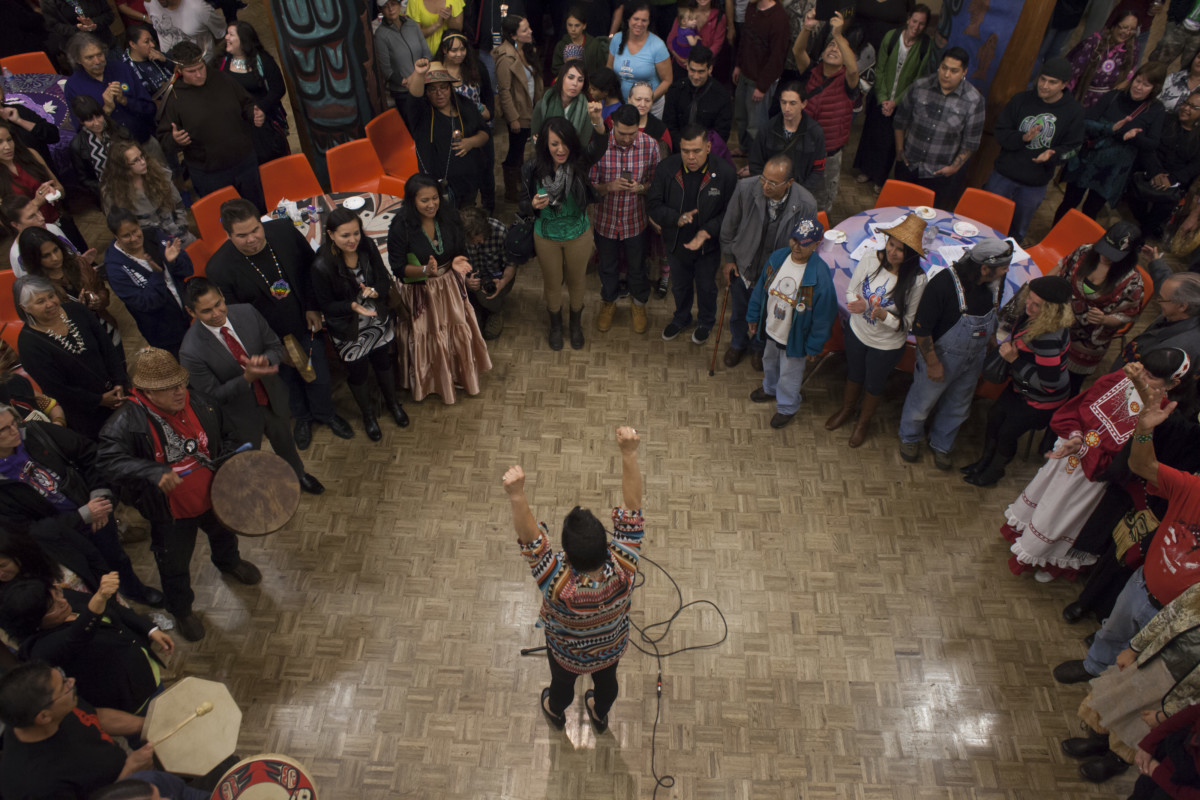
Rene Roman Nose addresses the crowd during a celebration marking Indigenous Peoples’ Day at the Daybreak Star Cultural Center on October 13, 2014 in Seattle, Washington. Earlier that afternoon, Seattle Mayor Ed Murray signed a resolution designating the second Monday in October to be Indigenous Peoples’ Day. (David Ryder / Getty Images)
By Jacqueline Keeler, Truthout
On Wednesday, October 3, the Cincinnati city council joined a growing trend when it voted to change Columbus Day to Indigenous Peoples’ Day. It is now one of more than 70 cities across the country to do so. The first was Berkeley, California, which adopted Indigenous Peoples’ Day in 1992, in recognition of the 500–year anniversary of the European arrival in the Western Hemisphere and the ensuing devastation to Indigenous nations already here in what became known as the Americas.
Other cities that have made the change include Los Angeles, Seattle and Phoenix, as well as states like Minnesota, South Dakota and Alaska, which have significant Native American and Alaskan Native populations. In 2017, the island country of Trinidad and Tobago made the change after a statue of Columbus was splattered in blood-colored paint. A grassroots group called the Cross Rhodes Freedom Project posted an explanation for the vandalism on Facebook at the time, explaining that the painting was soaked in red to protest the celebration of the “Genocidal Genovese Sailor” who “decimated the first peoples of the Americas, destroyed their way of life, then turned around and denied their humanity.”
There are rumors of more cities, including Dallas, Texas, following suit by today. More than 90 different entities (including cities, counties, colleges, universities, states and one country) have changed from honoring Columbus to honoring Indigenous people — at least in name — since 1990.
“I think history tells us that Christopher Columbus was not a good representation of the kind of people we’d want to value and appreciate,” said Chris Seelbach, a Cincinnati councilman, when explaining his vote. He also tweeted, “We can’t re-write history, but we can acknowledge the millions of people who didn’t need to be ‘discovered.’”
Click here to read the full article…
Jacqueline Keeler is a Diné/Ihanktonwan Dakota writer. Her book The Edge of Morning: Native Voices Speak for the Bears Ears is available from Torrey House Press and the forthcoming Standing Rock to the Bundy Standoff: Occupation, Native Sovereignty, and the Fight for Sacred Landscapes will be released next year.





































Well done. Greetings from Bolivia